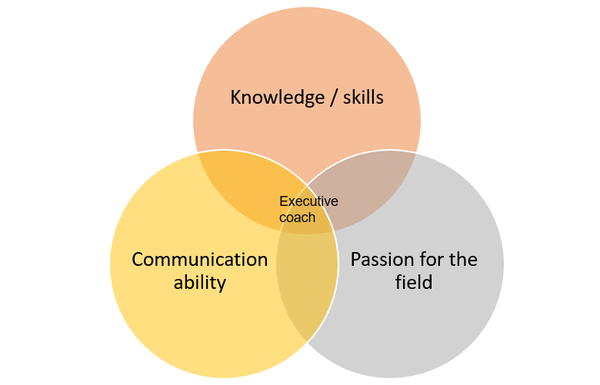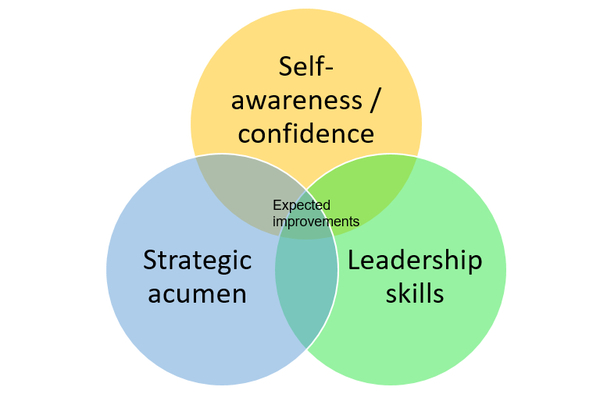THE WORLD’S #1 EXECUTIVE COACHING AND BUSINESS COACHING BLOG SINCE 2017.
Executive Coach Definition, Help, Services & Benefits
Published On: October 3, 2017 | Last updated on: October 3, 2017 | Author: John Mattone | Category: Blog, Executive Coaching
We’re used to thinking of coaches in terms of athletics, and that can help us understand what coaching is all about, whether we’re talking about the coach of a sports team, a singer’s opera coach, an actor’s dialog coach, or an executive coach.
Coaches teach skills and help people perfect them. They motivate people, hold their hand on occasion, and give them a metaphorical kick when they need it. A coach lets their charges know what is possible, and what a person must do to get there.

Executive coaches must have knowledge, passion, and outstanding communication skills.
When we try to take on major new responsibilities on our own, we may have tremendous drive and energy, but without a coach, we tend to expend our energy haphazardly, with more trial and error than is strictly necessary. With the help of a coach, we can focus our energies in ways that are likelier to get results, and avoid wasting time learning wrong or inefficient techniques.
It isn’t as if there’s no room for mistakes when working with a coach. The best coaches, in fact, look at mistakes as tremendous learning opportunities. But when we work with a coach, we’re less likely to have to undo prior learning and relearn skills from scratch. We’re also more likely to learn what our greatest strengths are and how to make the most of them.
That kind of knowledge is extremely difficult to acquire on one’s own, and that’s why people at the top of their game, whether the “game” is singing an aria, swinging a tennis racquet, or running a business, look to coaches for assistance.
What Is an Executive Coach?
An executive coach works with people at the top leadership levels of business and other organizations to improve their performance. When a company names a new CEO, vice president for operations, or other top executive, they do so because they expect that person to accomplish certain goals during their tenure. A celebrity CEO may make shareholders temporarily enthusiastic, but the long-term health of the business depends on looking beyond this quarter’s earnings, and the CEO who is a true leader wants to lay the groundwork for long-term success.
The executive coach takes in as much information as possible about a client’s history, qualifications, and ideals, observes that person in action, speaks with colleagues, direct reports, and superiors, and develops an overall picture of their values, their strengths, and their weaknesses.
Through various assessment techniques and extensive discussion of values and goals with the client, the executive coach helps the client define where they want to be as a leader, where they are now, and how to bridge the gap between the two. To this end, they may work on specific skills, like delegation or presentation skills, and will track progress throughout the coaching relationship.
Only rarely is the executive coach hired to turn around a “problem” executive, or to attempt to prepare someone who is not ready for their responsibilities. Today, executive coaches work with the best and help them improve further. The coach must be prepared to learn, adapt, teach, and practice skills with their client, because their own success depends on their clients’ success.
How Does an Executive Coach Provide Services?
Although some companies have internal personnel that provide coaching services, executive coaches are usually brought in from outside the organization. There are many reasons for doing it this way. An outsider can often develop a more objective and comprehensive view of an executive and their role in an organization than someone embedded in the organization can.
Outsiders don’t have the fear of getting on the wrong side of a client or company leadership, and so is able to be more candid and forthright with the client. If a harsh truth needs to be communicated to a client, the outsider coach knows how to do this with tact, and without minimizing the importance of the situation.
An executive coach enters a coaching relationship in learning mode. Who is the client? What are their values? What does the organization expect from them? What are their strengths and weaknesses? Who will this person be managing? What do those people think of their leader?
Before an executive coach can help the client create a plan of action, they must thoroughly understand both the client and the client’s environment. Along with the client, the coach develops a plan, defines goals and objectives, determines how progress will be measured, and creates a schedule for in-person meetings, phone check-ins, and other communication.
Effective coaching requires a plan of action and commitment to fulfilling it.
Once the coaching process concludes, both coach and client revisit initial goals, determine how much progress has been made, and develop a plan to maintain and fine-tune new skills.
Who Can an Executive Coach Help?
An executive coach can help leaders at every level of leadership, but most companies only invest in executive coaching for their top-tier executives. A coach may be brought in to assist someone who is newly promoted to a top leadership position, or may be brought in by the CEO him- or herself to help define and provide direction for that role.
Though it is rarer, executive coaches may be hired for the leader of an organization that finds itself in crisis. If, for example, a previous CEO dies unexpectedly, the company may choose to hire an executive coach for the new CEO to help minimize disruption and help leaders shepherd an organization through a healing process.
The executive coach is not, however, a miracle worker. They cannot help ill-prepared, uninterested, or recalcitrant leaders, nor can they turn someone with promise into an instant leader. An executive coach cannot “fix” a toxic organization, or somehow make a warring group of executives get along with each other.
Reasons for Enlisting an Executive Coach’s Services
The main reason organizations invest in the services of an executive coach is that they want their top leaders to perform at their highest levels. Hiring an executive coach is an act that shows great confidence in a leader. It says, “You are worth investing in, because you have outstanding potential.”
Sometimes, organizations hire an executive coach specifically for an executive in a critical assignment, who is facing intensive time, budget, and results expectations. This type of “stretch assignment” coaching is intensive and often has highly specific goals relevant to a particular project of initiative the client has been put in charge of.
Organizations may also hire an executive coach to help an executive enhance skills that confer a competitive advantage. In these cases, the coach helps the client acquire and develop skills that are geared toward driving stronger business and financial results.
Whatever the reason for an organization to hire an executive coach, the coaching process should follow a planned, multi-stage process designed to promote self-awareness, will to change, and the competencies that bring individual and organizational performance to a new, higher level.
The four major stages of the coaching process, though they are always personalized to the client, are awareness, analysis, action, and achievement. If all of these stages are given their due attention, businesses can have every expectation that their executive coaching client will demonstrate measurably better performance, improving business performance and making the overall corporate culture better.
People Who Have Benefited from Executive Coaching
Some of the people who have benefited tremendously from executive coaching are people you have heard of (like Steve Jobs), and other are not. But whether a leader is in the public eye or not, the most effective ones know they didn’t get to where they are without significant support and help, often from an executive coach. How do individual leaders benefit from executive coaching? The ways are almost as diverse as the individuals.
Clients can and should have high expectations for coaching outcomes.
Fabio Potenti, MD, the Chief Medical Operations Officer of the prestigious Cleveland Clinic operations in Florida states that coaching created “an enduring awareness of my inherent talents which have since been fueling both my personal and professional life.”
Richard Swanson, CEO of Nebraska Machinery found executive coaching to be instrumental in the development of the company’s talent management strategies, specifically in aligning team members’ capabilities with the overall business strategy, an alignment that resulted in sustained improvement in financial performance.
It is no exaggeration to say that a great executive coach can facilitate a life-changing experience in the client who is invested in the process. And just to put an end once and for all to the idea that executive coaches are remediators, Jeff Bezos of Amazon, Eric Schmidt of Google, venture capitalist Ben Horowitz, and the late Steve Jobs of Apple have all enlisted the services of executive coaches. They know that effective coaching can make good leaders into exceptional leaders.
What Does It Take to Be a Great Executive Coach?
Think about some of the great sports coaches, like Tommy Lasorda, Pat Summitt, or Eddie Robinson. What do they have in common? First, they all have extensive experience in their sport, and a reputation for demanding the best from themselves and others. They have high expectations of those they coach, but they’re willing to learn new skills themselves in order to coach more effectively. Most of all, however, they are committed to putting in the work required to deliver outstanding results. The executive coach should demonstrate similar qualities.
There’s nothing stopping a person from simply calling themselves an executive coach and trying to solicit clients. There’s no national or state certification or licensure program the way there is for doctors, for example. But the differences between being an executive coach and being an effective, outstanding executive coach are vast.
For one thing, the best executive coaches know what it’s like to have skin in the game, because they, too have held leadership positions. They must have a broad and deep understanding of corporate psychology, of business, and of what leadership really means – and what it doesn’t mean.
The most effective executive coaches have solid business leadership experience.
When looking for an executive coach, many organizations go by word-of-mouth recommendations, because when an executive coach helps a business get terrific results, people notice, and people talk about it. Otherwise, many organizations look for executive coaches certified by the Association of Corporate Executive Coaches (ACEC) or the International Coach Federation (ICF).
The ICF is the main credentialing body for training programs. Therefore, a coach who has trained in an ICF-accredited training program, is a coach who has met strong standards and understands the full hopes and implications involved in executive coaching.
What if You Want to Become an Executive Coach?
If you’re not passionate about helping clients achieve their own goals and solve their own problems, then perhaps becoming an executive coach is not for you. Likewise, you should bring something substantial of your own to the table. Maybe you have been a business owner, or a coach in some other capacity, and have first-hand knowledge and education in business. Don’t look to executive coaching as your ticket to making a living by giving advice, because that’s not what coaching is.
Assuming you are passionate about helping leaders reach their full potential and have relevant knowledge and experience, your next step is undergoing coaching training. Training programs that are accredited by the ICF let you be confident that you will receive high-quality training that has been fully evaluated.
Eminent executive coach John Mattone, who has coached Steve Jobs and other world-class business leaders, offers an Intelligent Leadership Executive Coaching Certification program that is accredited by the International Coach Federation and approved for 22.25 Continuing Coaching Education credits. Executive coach training programs differ, of course, but this one is a three-day, immersive program that focuses on four game-changing outcomes leaders can leverage: altruism, affiliation, achievement, and abundance.
This particular program offers an optional year-long follow-up program to help coaches learn the finer points of executing the Intelligent Leadership Coaching Process. “Advanced” and “Master” level certifications are available to coaches who complete further requirements. The coaching education program you select should not be quick and easy, because coaching is an involved and personalized process that requires coaches to be able to establish unique relationships with high-potential individuals to their benefit.
The coach-client relationship is a unique type of business relationship.
Being an executive coach means working largely out of the spotlight so that executive clients are able to fulfill their potential and get the results their organization needs. It isn’t something just anyone can do, and it requires commitment to continual personal improvement in order to help clients achieve their goals. Ideally, the work done between an executive leader and their coach creates something that is greater than the sum of their skills, resulting in a more effective leader and a stronger, more capable business or organization.
As more businesses understand what coaching is and is not, what it can and cannot do, and who benefits most from coaching, you can expect executive coaching to become an expected part of the development of the world’s top business leaders. John Mattone is one of the most in-demand executive coaches in the world and has won numerous awards with his coaching, coach training, and books on leadership and corporate culture.
If you want to learn more, whether as an executive or as an aspiring executive coach, check out John Mattone’s books on leadership and culture, as well as his American Management Association HR Briefs, one of which is on the topic of “Powerful Executive Coaching.” As someone who has long recognized the value of leadership coaching, John Mattone is uniquely positioned to not only coach today’s leaders, but to train tomorrow’s leadership coaches.
Glossary of Terms
Assessment techniques – the tools and processes used by executive coaches to get to know clients, evaluate their strengths, weaknesses, leadership styles, and personality traits
Celebrity CEO – a type of CEO of a decade or two ago who was often also chairman of the board. These CEOs were often given outsized power and adulation, but the tide has turned in recent years, with more companies focusing on long-term results rather than fame.
Executive coach – a business professional trained not only in business principles, but also in personal leadership coaching. The executive coach is to the CEO or other high-level executive what the championship boxing, opera, or acting coach is to their world-class client.
International Coach Federation (ICF) – an international organization started in 1995 for fellow coaches to offer mutual support and bring attention to the profession. The organization now has a regional support structure designed to strengthen the global coaching community.
Learning opportunities – otherwise known as “mistakes,” or “missteps.” Learning opportunities abound, and the right executive coach is adept at recognizing them and putting them to use to bring their clients’ performance to higher levels.
Plan of action – a blueprint created by an executive coach and their client that outlines strengths, weaknesses, goals, objectives, and the steps to take to reach them. It is an essential document in the executive coaching process.
Stages of coaching – Awareness, analysis, action, and achievement are the basic stages of coaching. All must be pursued, with some stages receiving more emphasis than others, depending on the client and their particular coaching needs.
Stretch assignment coaching – coaching of the executive who has been given a task that stretches their current knowledge and skills and that will require them to learn and grow in order to succeed.
Toxic organization – a business or other organization characterized by infighting, disharmony, poor communication, and “drama.” Toxic organizations cannot reasonably expect an executive coach to be the answer to their deep-seated problems.





